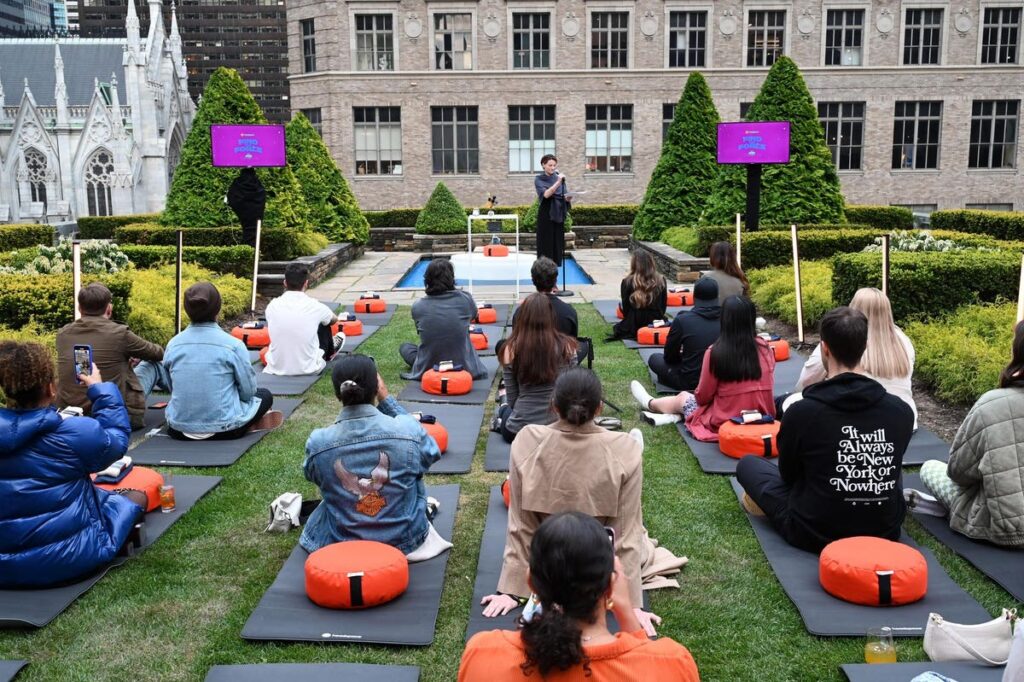NEW YORK, NEW YORK – MAY 03: Helen Day leads a meditation class as Headspace collaborates with … [+]
If you’ve been on the fence about whether or not to invest in in-person mindfulness courses, this might be the sign you’re looking for. A new study published in Nature Mental Health, found that they might help in reducing psychological distress — including anxiety and depression — for up to six months after completing the course.
In a press release, lead researcher of the study, Dr Julieta Galante, who worked at the University of Cambridge, said, “In our previous work it was still not clear whether these mindfulness courses could promote mental health across different community settings. This study is the highest quality confirmation so far that the in-person mindfulness courses typically offered in the community do actually work for the average person.”
ADVERTISEMENT
Galante and team analyzed data from 13 studies that represented eight countries to assess how effective in-person mindfulness courses might be in real life. They estimate that around 15% of English adults and 20% of Australians have been a part of meditation courses that focused on mindfulness in their lifetime. But in comparison, only 5% of American adults had enrolled for such a course in 2019 although 79% of U.S.-based medical schools offer mindfulness meditation courses on campus.
“Mindfulness is typically defined as ‘the awareness that emerges through paying attention on purpose, in the present moment, and non-judgmentally to the unfolding of experience moment by moment.’ Core mindfulness-based program elements are mindfulness meditation training, doing things mindfully such as eating or brushing one’s teeth, and collective and individual inquiry with a qualified teacher, using participatory learning processes,” the researchers wrote in their study. “They emphasize scientific approaches to health and aim to be suitable for delivery in public institutions in various settings and across cultures.”
After analyzing the data that included 2,371 adults, they found that people who completed mindfulness-based programs had lower levels of psychological distress compared to those who never went for in-person courses. The study further stated that individuals who were suffering from poor mental health might be the most likely to benefit from mindfulness-based programs that lasted for eight weeks with a one or two-hour session per week. The mean age of the participants was 34 years and 71% of them were women.
ADVERTISEMENT
“We’ve confirmed that if adults choose to do a mindfulness course in person, with a teacher and offered in a group setting, this will, on average, be beneficial in terms of helping to reduce their psychological distress which will improve their mental health. However, we are not saying that it should be done by every single person; research shows that it just doesn’t work for some people,” Galante explained.
“We’re also not saying you should absolutely choose a mindfulness class instead of something else you might benefit from, for example a football club – we have no evidence that mindfulness is better than other feel-good practices but if you’re not doing anything, these types of mindfulness courses are certainly among the options that can be helpful,” she added.
Galante further emphasized that although mindfulness meditation apps are popular and far cheaper than in-person programs, they might not be as effective as practising mindfulness meditation in a group setting.
ADVERTISEMENT


